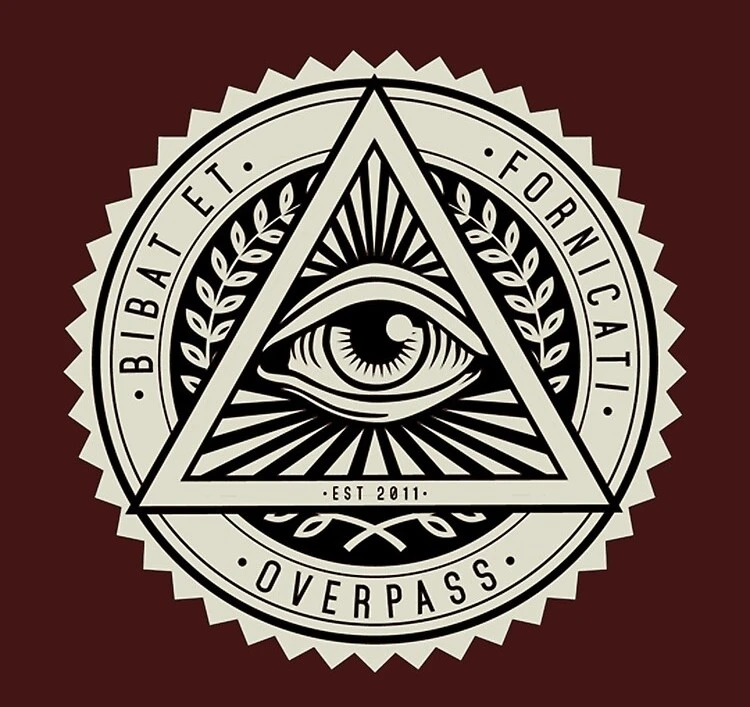Illuminati: The Mysterious Power That Rules the World #1

Why did I research the illuminati?
The Illuminati has become a central element in many conspiracy theories known worldwide today, becoming part of popular culture. Rumours that this society was behind the assassination of J.F.K. and Robert Anton Wilson's book The Illuminatus! Trilogy have been quite influential in shaping this reputation. This interest has led to many works incorporating references and allusions to the Illuminati, cementing its place in popular culture. Examples include the ‘Los Iluminados Cult’ in the game Resident Evil 4, the Los Angeles Public Library building in the game L.A. Noire, and the secret society fighting the Catholic Church in Dan Brown's novel Angels and Demons. ‘Illuminati’, and the use of imagery reminiscent of Illuminati symbols in music videos by famous artists such as Lady Gaga, Jay-Z, and Ke$ha, particularly between 2008 and 2012. To understand how much the fame of a society that has gained such a foothold in popular culture corresponds to reality, I decided to prepare this file.
What is the Illuminati?
The Illuminati is a secret society founded in Bavaria in the 18th century. Its founder was Adam Weishaupt, a professor of law at the University of Ingolstadt. The name, which means ‘the enlightened ones’ in Latin, symbolises the organisation's fundamental goal of fighting ignorance, religious dogma and social oppression. This short-lived society was banned in 1785. However, over time, the organisation became central to various conspiracy theories and began to be regarded as a secret power allegedly controlling world events from behind the scenes.
When and Where Did the Illuminati Have an Impact?
The Illuminati was founded in 1776 in the Bavarian city of Ingolstadt. After its establishment, its ideas attracted great interest in intellectual circles and quickly began to gain influence in various parts of Germany. Its most powerful period was between 1780 and 1785. However, its growing influence disturbed the authorities, particularly those aligned with the church and the monarchy. As a result, it was banned by the Bavarian government. Although legally dissolved, traces of the Illuminati continued to exist through rumours, documents, and theories. Today, the belief that it is still active and even powerful enough to be influential worldwide is a widespread conspiracy theory.
Who are the Illuminati?
When the Illuminati was founded by Adam Weishaupt, it was under great pressure from the Jesuits. Weishaupt's anti-church and anti-monarchy views were in line with the liberal literature of the time. Furthermore, the new ideas of a changing world had led to an increase in intellectuals within the Freemasons who wanted reform. For this reason, the Illuminati attracted interest from its inception. Adolph Knigge is one example of this.
How was the Illuminati founded?
When we examine the period from the founding of the Illuminati to its ban, we see that the alignment of the society's views with the ideas that were quite influential in the world at that time provided a favourable environment for the establishment of a society such as the Illuminati. Examples of this situation include the ongoing American War of Independence between 1776, the year the Illuminati was founded, and 1785, the year it was banned; the continuing effects of the Seven Years' War; the rapid rise of the ideological currents that would later lead to the French Revolution; and the negative effects of the political struggles between the church and the great dynasties on the people. This environment paved the way for the existence of a society such as the Illuminati, which was opposed to both the church and the monarchy, unlike the Rosicrucian Order or the Freemasons, which were anti-church but had close ties to the monarchy. Bavaria in particular, with its pro-church ruler lacking the qualities necessary to be a successful leader and facing strong opposition due to the influence of larger dynasties, became a place where such an organisation would attract interest. In this environment, Adam Weishaupt became a target in academia due to his views and felt the need to spread his ideas by gathering intellectuals who shared similar views, thus founding the Illuminati.
Next Page
Kaynakça
- Henken, Elissa R. "How Did He Get So Famous? Illuminati and the Pop Star." Contemporary Legend, vol. 8, 2021, pp. 1–20.
- Robert Anton Wilson & Robert Shea. The Illuminatus! Trilogy. Dell Publishing, 1975.
- Dan Brown. Angels & Demons (Melekler ve Şeytanlar). Pocket Books, 2000.
- Mark Dice. The Illuminati: Facts & Fiction. The Resistance Publishing, 2010.
- Vernon L. Stauffer. New England and the Bavarian Illuminati. Columbia University Press, 1918.
- Terry Melanson. Perfectibilists: The 18th Century Bavarian Order of the Illuminati. Trine Day, 2009.
- Resident Evil 4 (Capcom, 2005).
- Engel, L. (1906). Geschichte des Illuminaten-Ordens: Ein Beitrag zur Geschichte Bayerns. Berlin: H. Bermühler Verlag.
- L.A. Noire (Rockstar Games, 2011).